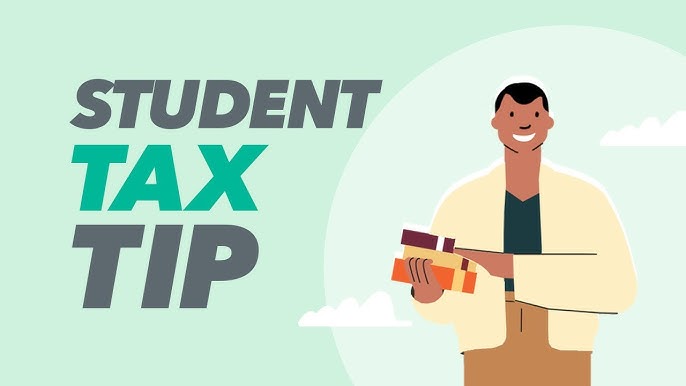Tax Tips for Students: Tuition, Textbooks & More
Discover essential tax tips for students to help you save on tuition, textbooks, and other expenses. Learn how to maximize your tax return and take advantage of student-specific deductions.
9/6/20253 min read


As a student, taxes may not be the first thing on your mind, but understanding how to file and which deductions you qualify for can make a big difference. Whether you’re paying for tuition, textbooks, or other educational expenses, there are several tax benefits you may not be aware of. In this blog post, we’ll explore key tax tips for students, focusing on tuition, textbooks, and other deductions that can help you maximize your tax return.
1. Claim Your Tuition Fees
Tuition fees are one of the most significant educational expenses, and fortunately, they are tax-deductible. As a student, you can claim these fees on your tax return, which may result in a significant tax break.
Why It Works:
The tuition tax credit allows you to reduce the amount of tax you owe, based on the eligible tuition fees you paid. This benefit can help you save money and ease the financial burden of school expenses.
2. Textbook Tax Credit
In addition to tuition, many students are also eligible for the textbook tax credit. This credit is designed to help offset the cost of textbooks, which can add up quickly over the course of a semester.
Why It Works:
The textbook tax credit is available for students who are enrolled in post-secondary education. By claiming this credit, you can reduce your taxable income and get more money back in your tax refund.
3. Explore Education and Textbook Amounts
The education and textbook amounts were replaced by the Canada Training Credit, but if you’re a student and have unused amounts from previous years, you can carry them forward. Be sure to check if you qualify for this carry-forward benefit.
Why It Works:
For students with accumulated unused amounts, this credit can help further reduce your tax burden, putting more money in your pocket to cover your next semester’s expenses.
4. Interest on Student Loans
If you have student loans, the interest you pay may also be eligible for tax deductions. The CRA allows you to claim interest paid on federal and provincial student loans during the year.
Why It Works:
Claiming student loan interest can help reduce your taxable income, resulting in a smaller tax bill. If you’ve been paying off your loans, this is an essential benefit to consider when filing your taxes.
5. Moving Expenses for Students
If you moved to attend school, and your move was more than 40 kilometers closer to your new school, you might be able to claim moving expenses. This can include costs like transportation, storage, and travel expenses.
Why It Works:
Moving expenses are deductible for students if they meet the specific criteria. This deduction can help you reduce your taxable income, which is especially beneficial for students who have relocated for education purposes.
6. Scholarships and Grants
Scholarships and grants you receive for your studies are often tax-free. However, any amounts you receive in addition to your tuition fees or stipends may be taxable. Be sure to check the rules for your specific situation.
Why It Works:
Many students benefit from tax-free scholarships, which can reduce their overall taxable income. If any portion of your scholarship or grant is taxable, be sure to report it accurately to avoid penalties.
7. Save for the Future: RRSPs
Although students often focus on immediate expenses, contributing to a Registered Retirement Savings Plan (RRSP) can offer long-term tax benefits. Contributions to an RRSP are tax-deductible and grow tax-free until retirement.
Why It Works:
While RRSP contributions may not seem like an immediate priority for students, they can help you save on taxes now and set you up for a secure future. Contributing even small amounts can pay off in the long run.
Conclusion:
Being a student comes with plenty of financial challenges, but filing your taxes doesn’t have to add to the stress. By understanding and utilizing these tax tips, including deductions for tuition, textbooks, and other expenses, you can reduce your tax burden and make the most of your education. Don’t leave money on the table—take advantage of these student-specific tax credits and deductions to maximize your tax refund.
TiKi Tax
© 2025. All rights reserved.
